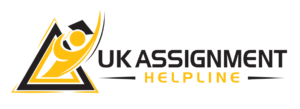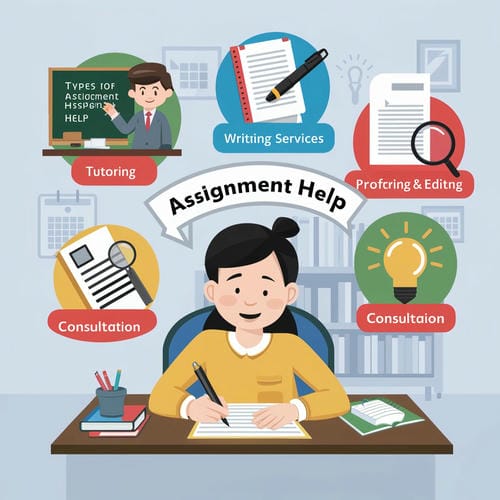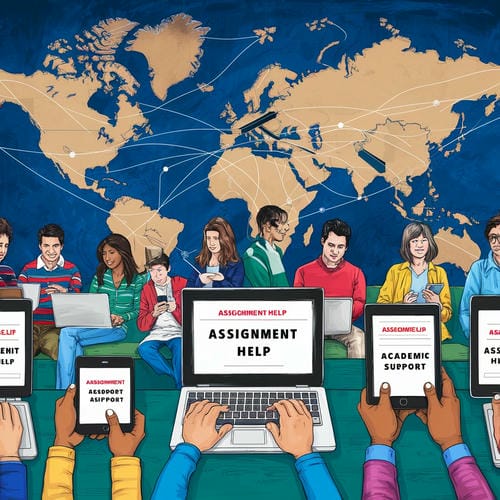Have you ever found yourself overwhelmed with assignments and wondered, “Is assignment help legal?” It’s a question that many students ask as they navigate the pressures of academic life.
With deadlines approaching and the constant juggle of multiple courses, the urge to seek external help is real. In today’s digital age, assignment help services are more accessible than ever, offering everything from tutoring to full-fledged essay writing. They promise to ease your academic burden and help you achieve better grades.
But before diving in, it’s crucial to understand the legal landscape of these services.
In this article, we’ll explore the ins and outs of assignment help services, examining their legal status across different countries, the policies of educational institutions, and the ethical implications involved.
[toc]
By the end, you’ll have a clearer understanding of how to navigate this tricky terrain without compromising your academic integrity. So, let’s dive in and uncover the truth behind the question that’s on every student’s mind.
Is Assignment Help Legal?
1. Assignment Help Services
Assignment help services provide students with academic assistance in various forms. These services include tutoring, writing assistance, proofreading, and editing. They cater to students who need support in managing their coursework and improving their understanding of the subject matter.
2. Types of Assignment Help Services
There are several types of assignment help services available:
- Tutoring: One-on-one sessions where experts help students grasp difficult concepts.
- Writing Services: Professionals write essays, research papers, and other assignments based on the student’s requirements.
- Proofreading and Editing: These services review and refine assignments to ensure they meet academic standards and are free from errors.
- Consultation: Guiding how to approach an assignment, develop a thesis, or organize ideas effectively.
3. Popularity and Accessibility
The demand for assignment help services has grown significantly due to the increased academic pressure on students. With the advancement of the internet, these services are more accessible than ever, allowing students from various locations to seek assistance online.
4. Legal Considerations
It is essential to understand the legal framework surrounding assignment help services. While these services are legal in many countries, how they are used can determine their legality. Misuse, such as submitting purchased work as one’s own, can lead to serious academic consequences.
Understanding the nature and types of assignment help services is crucial for making informed decisions about their use. This knowledge will help students navigate their academic challenges responsibly.
Must read:
- How to Write an Assignment for University?
- How to do Assignments in UK?
- What happens if you fail an assignment at a UK university?
- How long does it take to do an Assignment?
Legal Aspects of Assignment Help
1. Global Perspective
The legality of assignment help services varies across different countries. In the United States, the United Kingdom, Australia, and Canada, these services are generally legal, provided they operate within specific guidelines.
These guidelines often stipulate that the services should be used for reference and learning purposes, rather than submitting the work as one’s own.
2. Educational Institutions’ Policies
Most educational institutions have strict policies regarding academic integrity. Universities and colleges typically allow students to seek help with understanding concepts and improving their skills.
However, they draw the line at submitting work completed by someone else. Plagiarism and academic dishonesty can lead to severe penalties, including suspension or expulsion.
3. Legal Boundaries
The primary legal boundary revolves around how students use these services. If a student uses an assignment help service to gain a deeper understanding of a subject or to improve their writing skills, it is generally considered acceptable.
However, using these services to submit assignments as one’s work is illegal and unethical.
4. Contract and Intellectual Property Laws
Service providers must adhere to contract and intellectual property laws. They must ensure that the work provided is original and that any contracts with students are clear about the intended use of the material. Failure to comply with these laws can result in legal actions against the service providers.
Understanding the legal aspects of assignment help is critical for both students and service providers. It ensures that the services are used ethically and within the boundaries of the law. This knowledge can help students make informed decisions and avoid potential legal and academic consequences.
Related articles:
- How to Write a Conclusion for a University Assignment?
- How to Write an Essay for University Assignment?
- How to Write an Introduction for a University Assignment?
- How To Make a Cover Page for a University Assignment?
Ethical Considerations
1. Academic Integrity
Academic integrity is a cornerstone of education. It demands honesty and responsibility in scholarship. When students use assignment help services, they must ensure that their actions do not violate the principles of academic honesty.
Misrepresenting someone else’s work as your own is a breach of this integrity and can undermine the value of your education.
2. Student Responsibility
Students have a responsibility to use assignment help services ethically. This means using these services to enhance understanding and improve academic skills, not to cut corners.
Proper use involves seeking clarification on difficult topics, getting feedback on drafts, and learning from examples provided by experts. This approach aligns with the goals of education and personal development.
3. Long-term Implications
Misusing assignment help services can have long-term implications. Academic dishonesty can result in severe disciplinary actions from educational institutions, including suspension or expulsion.
Moreover, it can tarnish a student’s academic record, affecting future educational and career opportunities. Ethical use of these services protects students from such repercussions.
4. Promoting Fairness
Ethical considerations also involve fairness. All students should have an equal opportunity to succeed based on their efforts and abilities. When some students misuse assignment help services, it creates an uneven playing field.
Promoting fairness means encouraging all students to adhere to the same ethical standards and academic policies.
Understanding the ethical implications of using assignment help services is essential for maintaining the integrity of the educational system. By upholding academic honesty and taking personal responsibility, students can benefit from these services without compromising their values or future opportunities.
Trending Articles:
- How to Prepare Assignment for University?
- How to Reference University Assignments?
- How to Start an Assignment for University?
- How to Answer University Assignment Questions?
- How To Write MBA Assignment?
Legal Risks and Consequences
1. For Students
Students who misuse assignment help services face significant legal risks and academic consequences. Educational institutions have strict policies against plagiarism and academic dishonesty. If caught submitting work that is not their own, students can face penalties ranging from failing the assignment to expulsion.
Additionally, academic misconduct can be recorded on their permanent academic record, potentially impacting future educational and career prospects.
2. Academic Penalties
The academic penalties for misusing assignment help services are severe. They often include failing grades, academic probation, suspension, or even expulsion. Institutions may also cancel degrees if misconduct is discovered after graduation. These penalties underscore the importance of using assignment help services appropriately and ethically.
3. Legal Consequences for Service Providers
Service providers are also subject to legal risks. They must ensure compliance with intellectual property laws and contractual obligations. If they are found to be encouraging or facilitating academic dishonesty, they could face legal actions, including fines and business closures. Providers must communicate the intended use of their services to avoid legal repercussions.
4. Regulatory Challenges
The assignment helps the industry face regulatory challenges in many regions. Governments and educational bodies are increasingly scrutinizing these services to ensure they do not promote academic dishonesty. Providers must navigate these regulations carefully to operate legally and ethically.
5. Impact on Reputation
Both students and service providers risk damaging their reputations through unethical practices. For students, a record of academic dishonesty can hinder job prospects and professional relationships.
For service providers, negative publicity and legal issues can discourage potential clients and harm business sustainability.
Understanding the legal risks and consequences associated with assignment help services is crucial. It highlights the importance of ethical usage and adherence to academic and legal standards. Both students and providers must be aware of these risks to make informed and responsible choices.
How Do I Use Assignment Help Legally?
1. Guidelines for Students
Students can use assignment help services legally and ethically by following certain guidelines. First, they should use these services for learning purposes, such as understanding complex concepts, improving writing skills, and receiving feedback on drafts.
It’s important to avoid submitting purchased or completed work as their own. Instead, students should integrate the insights gained from these services into their original work.
2. Responsible Usage
Responsible use of assignment help involves seeking assistance to enhance one’s knowledge and capabilities. This includes using tutoring services to grasp difficult subjects, getting proofreading help to polish one’s work, and using writing services to understand how to structure and develop arguments. These practices ensure that the student’s final submission is their effort.
3. Choosing Reputable Services
Selecting reputable and ethical assignment help services is crucial. Students should research and choose providers that clearly state their terms of service and emphasize the importance of academic integrity.
Reliable services will offer support and guidance rather than simply completing assignments for students. Look for reviews, testimonials, and the provider’s commitment to upholding ethical standards.
4. Clear Communication
Clear communication with the service provider is essential. Students should be upfront about their needs and expectations, ensuring that the assistance they receive is in line with academic guidelines. This helps prevent any misunderstandings and ensures that the service is used appropriately.
5. Educator Support
Students should also seek support from their educators. Professors and academic advisors can provide valuable guidance and resources to help students succeed.
Utilizing office hours and academic support centers can supplement the assistance received from assignment help services, ensuring a comprehensive understanding of the material.
By following these guidelines, students can use assignment help services to their advantage without violating legal or ethical standards. This approach promotes personal growth and academic success while maintaining integrity.
Conclusion
Understanding whether assignment help is legal is essential for students seeking to navigate academic pressures responsibly. While these services can offer valuable support, it is crucial to use them ethically and within the bounds of academic integrity.
By adhering to guidelines, choosing reputable providers, and using these services for learning enhancement, students can avoid legal and academic repercussions.
If you need reliable and ethical assistance with your assignments, visit ukassignmenthelpline.com. Our services are designed to support your educational journey while upholding the highest standards of academic integrity.




